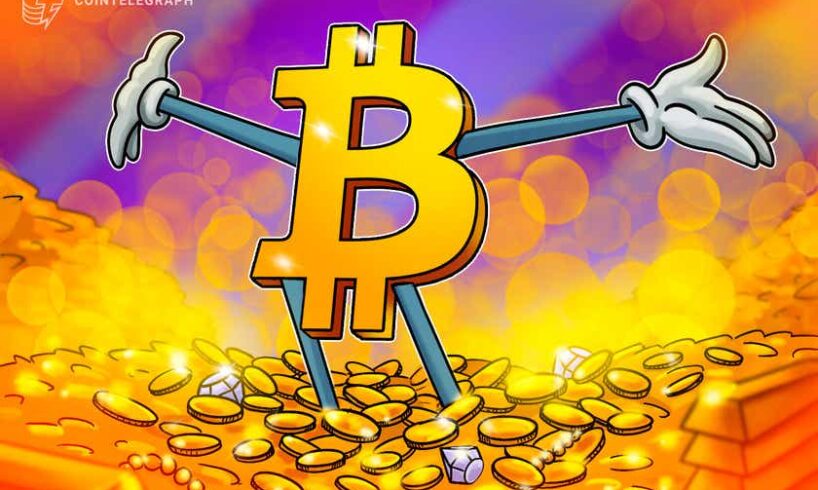
Bitcoin “may be primed” for a quantum leap in its development thanks to inflation this year, a Bloomberg analyst has claimed.
In a tweet on March 17, Mike McGlone, senior commodity strategist at Bloomberg Intelligence, released a fresh bullish take on Bitcoin’s (BTC) future under the current macro conditions.
Gold beating Bitcoin is “unlikely” this year
Well known for his belief in Bitcoin coming from the latest global financial turmoil out on top, McGlone argued that inflation would ultimately help Bitcoin’s “maturation” as an asset class, claiming it would even beat gold in terms of returns.
“Facing the Federal Reserve, inflation and war, 2022 may be primed for risk-asset reversion and mark another milestone in Bitcoin’s maturation,” he wrote.
“It’s unlikely for Bitcoin to stop outperforming gold, stock market amid bumps in the road as the Fed attempts another rate-hike cycle.”
An accompanying chart showed Bitcoin’s performance relative to a basket of macro assets.
Bitcoin vs. macro assets chart. Source: Mike McGlone/Twitter
The forecast followed the first in what the Fed hinted would be a series of key interest rate hikes, an event that delivered a modest but welcome boost to BTC price action.
Former BitMEX CEO sees $1 million BTC
McGlone, however, was far from alone in his prediction. Arthur Hayes, former CEO of derivatives exchange BitMEX, delivered a stark warning about what was to come for global financial markets in his latest Medium post.
Related: Which tokens should you buy and hodl in 2022? Find out now on The Market Report live
The Ukraine–Russia war, while adding to inflationary pressure, is symbolic because it has shown that even a central bank’s foreign currency assets can be effectively stolen, he argued.
“You cannot remove the world’s largest energy producer — and the collateral these commodity resources represent — from the financial system without serious unimagined and unintended consequences,” he reasoned.
Covering a range of macro topics, the post foresaw a restructuring of the financial system, during which Bitcoin, like stocks and commodities, would see heavy losses.
“If you aren’t willing to babysit your Bitcoin, then close your eyes, press that buy button, and concentrate on the safety of your family from a physical and monetary perspective. Awakening a few years after the fog of war dissipates will present a situation where hard money instruments rule all of global trade,” Hayes wrote.
Ultimately, however, both Bitcoin and gold should take a significantly more important role as stores of value in the face of declining participation in the U.S. dollar and euro standard from other governments.
Under such circumstances, which he acknowledged were to play out “over the next decade,” gold could be five figures an ounce, while a single Bitcoin could fetch a seven-digit dollar sum.
“For a single Bitcoin, my unit is in the millions. For an ounce of gold, my unit is in the thousands,” he continued.
“That is the magnitude of fiat denominated price that will occur in the coming years as global trade is settled via neutral hard monetary instruments and not the debt-backed fiat currencies of the West.”















